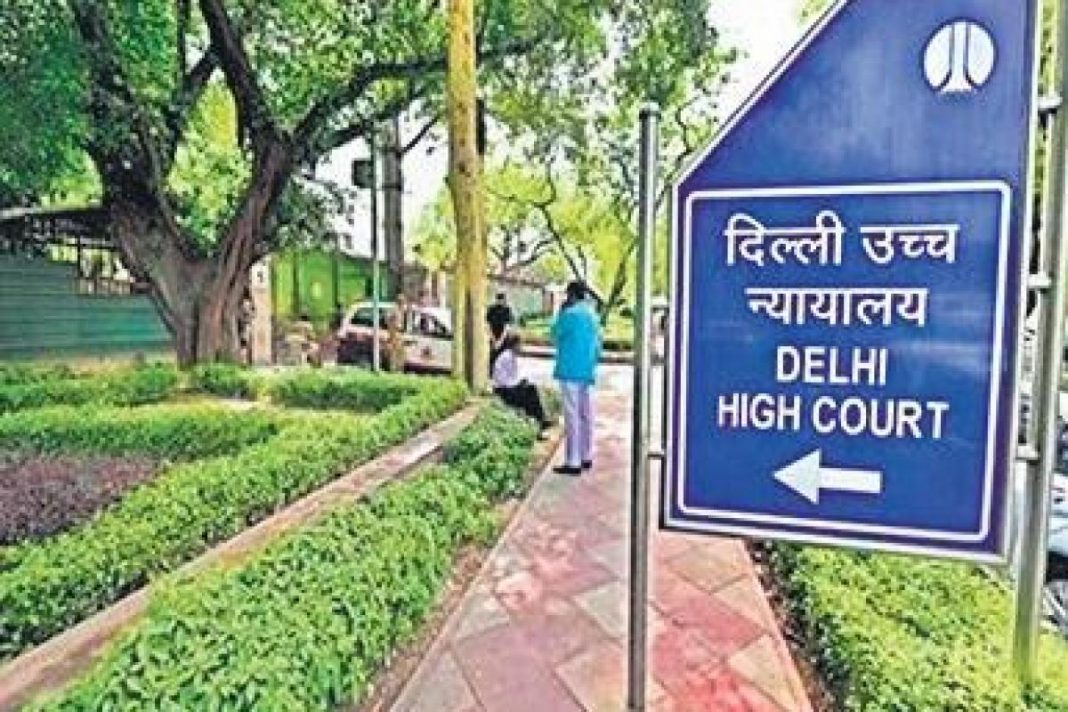The Delhi High Court on Wednesday awarded Rs 20 lakh as monetary compensation to 28-year-old man who was left with 100% disability after an accident while he was working as an electrician with Bryan Construction Company which was assigned to carry out repair and maintenance works for BSES Rajdhani Power Limited.
The plea was filed by father of Bharat as due to the accident he is virtually bed-ridden and therefore not in position to file and pursue his claim against the respondents.
The Delhi High Court has directed that the said amount be paid equally by M/s Bryn Construction Company (employer) and BSES Rajdhani Power limited, who were held strictly liable for the accident that resulted in 100 % disability of petitioner’s son. Apart from the monetary compensation the court also provided certain non-monetary benefits. The court was duly assisted by Ms. Prabhsahay Kaur who was appointed as Amicus Curiae.
A Single Judge Bench of Justice Anup Jairam Bhambani pronounced the judgement in a plea filed by Kehar Singh, father of Bharat Singh who while working as an electrician with M/s Bryn Construction Company (Byrn), was tasked with rectifying a fault in an electricity pole that was causing fluctuation in the electricity supply at a farmhouse in Bijwasan, New Delhi. While performing the task Bharat Singh suffered a fall, as the electricity pole that he climbed on snapped, resulting in 100% disability. Byrn was engaged in carrying-out assigned repair and maintenance works for BSES Rajdhani Power limited (BRPL) in relation to the electricity distribution networks of BRPL.
The Court in holding BRPL and Bryn liable applied principle of res ipsa loquitur, whereby no detailed evidence, much less a trial, is required to establish ex-facie negligence, the court further stated that obligation is based on the concept of ‘strict liability’ and does not require any negligence on the part of either of the respondents.
The Court rejected an undated declaration signed by Bharat Singh accepting payment of a small sum of compensation in full-and-final settlement from Bryn and absolving them of any further liability the court observed:
“In the opinion of this court, this declaration, even though signed by Bharat, deserves no credence or value since it smacks of being a document procured by Bryn precisely for the purpose of absolving itself of any further claim or liability vis-à-vis Bharat, by suborning a hapless and resourceless victim with a small amount of monetary bait, knowing full well that their actual liability would be much more. Such declaration does not inspire any confidence and was ex-facie signed under economic duress.”
The court awarded Rs. 20,00,000 as monetary compensation to Bharat Singh s/o Kehar Singh under the Employees Compensation Act, to be paid equally by Byrn and BRPL, holding them jointly and severally liable, in addition to this monetary compensation, balance sum of fixed deposit account, that was created by BRPL upon directions issued by the High Court on March 31, 2016 which amounts to Rs. 1,96,055 was also awarded to Bharat Singh. The Court also directed the petitioner to open a general/ provision store for the benefit and welfare of his disabled son, from a portion of his house. The court clarified that all earnings from the store would be used and applied for Bharat’s medical and living expenses and for his welfare and well-being.
The court further directed the State of Uttar Pradesh to treat Bharat Singh as a person with 100% permanent disability and to provide him with:
i. Disability pension
ii. Lifelong free bus and railway passes
iii. Free physiotherapy and occupational therapy, till as long as it is considered necessary in the professional opinion of the concerned doctors
iv. All other forms of relief, assistance, help and aid in accordance with his entitlements, under government schemes, rules and notifications, as may be applicable to him from time-to-time.
The Court had appointed Ms. Prabhsahay Kaur as Amicus Curiae, who submitted that claim made in the present petition should be made on the principles of Strict Liability without entering upon any factual issues.
The Amicus further submitted principles of section 4 of the Employee’s Compensation Act if applied to the present case, would lead to the following calculation of compensation payable to Bharat: Amount of Compensation = 60% of Monthly Wages X Relevant Factor, the ‘relevant factor’ being as provided in Schedule IV of the Employee’s Compensation Act, which sets-out certain multiplication factors which depend on the age of the employee who suffers permanent disablement or death. Clause 19 of the contract categorically provided that Bryn was liable for settlement of any claims in relation to the contract.
The Amicus also pointed out section 4A of the Employee’s Compensation Act, the lump-sum compensation amount payable would attract interest @ 12% per annum for the period of delay after one month from the date it fell due, in addition to penalty of up to 50% of the amount that fell due towards compensation, calculation, taking the monthly wage paid by Bryn to a linesman, namely Rs. 10,375/- per month, the amount of lump-sum compensation payable to Bharat would be Rs. 13,86,370/- plus 12% p.a. interest from 2014 onwards plus 50% penalty.


